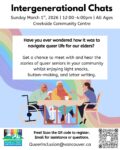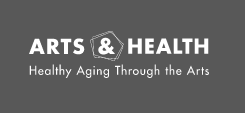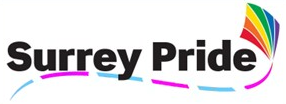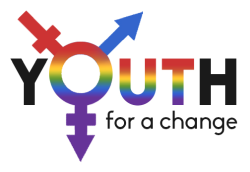
In 2006, Donna Wilson, executive director of The Centre (now called QMUNITY), attended a conference of LGBT Community Centres. She returned making the decision that Vancouver’s queer Centre needed to provide specific services and programs for older members. She brought together two other organizations, the 411 Seniors Centre and Family Services, and applied to Vancouver Coastal Health for funding. The program was called the Generations Project.
Before long, Claire Robson, recently moved to the area, approached Chris Morrissey at The Centre to talk about possibilities of work. Claire was a published author of her memoir, Love in Good Times. The Generations Project offered her an honorarium for four sessions called Writing Our LGBT Lives. These sessions took place at the 411 Seniors Centre. At the end, the 12 participants were eager to continue. So through the summer they contributed their own money for additional writing sessions.
In the fall, Vancouver Parks and Recreation put out a call to groups of older adults to apply to participate in a new three-year pilot project called Arts, Health, and Seniors (AHS). The focus was to look at the relationship between engaging in the arts and the impact on the health of older adults. The Generations Project applied and was accepted. Participation grew. Given their interest, memoir writing was the art form members chose with Claire Robson as the facilitator. One of the conditions of participating in AHS was that the group needed to be connected to a municipal community centre. The Generations Project moved from the 411 to Britannia Community Centre and changed its name to Quirk-e, the Queer Imaging and Riting Kollective for Elders. After the pilot ended, Claire, with the help of members, successfully applied for and received grants in order to continue with a paid artist to lead weekly sessions.
In 2017, after 10 years, Claire left Quirk-e to pursue other projects. The group decided to form a Coordinating Committee. The committee facilitates gatherings, recommends artistic direction, organizes workshops, and carries out administrative tasks. The membership collectively makes decisions by consensus about the focus of an annual project. Members of Quirk-e regularly present their work to the public through readings and performances. The group has published eight anthologies and several periodicals. SInce 2018, members have worked in smaller groups focusing on different genres such as memoir, fiction, and issue-oriented zines.
With the advent of Covid, Quirk-e went online and continues to meet weekly on Zoom year-around. The online sessions accommodate more regular participation by members with disabilities that make it hard to travel to the community centre. The group also schedules regular in-person gatherings to share food, conversation, and our latest works.











